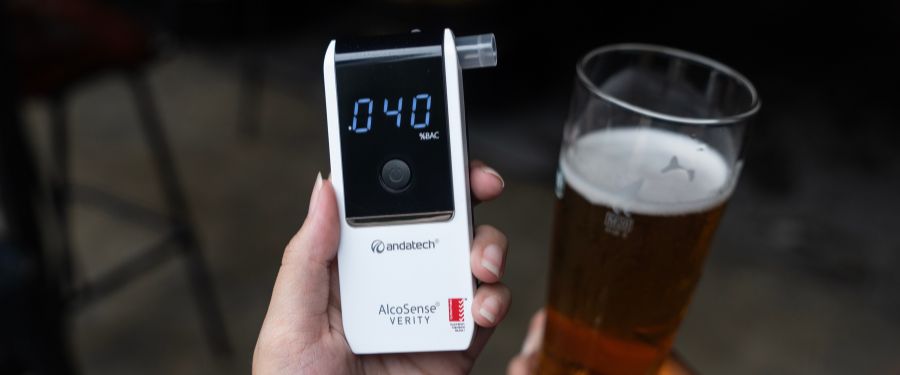When a person drinks alcohol and gets intoxicated, their blood alcohol content or BAC increases. The higher the BAC, the more intoxicated the person is.
Driving after drinking even a little bit of alcohol can be dangerous as impairment begins at low doses of alcohol, approximately at BAC as low as 0.0018.
Before we answer the big question of how long it takes for our BAC to reach zero, we explore what BAC is.
What is BAC?
Blood Alcohol Content (BAC) refers to the concentration of alcohol in a person's bloodstream, measured as %BAC. For example, 0.05%BAC means that there are 0.05 grams of alcohol per 100 millilitres of blood.
BAC is a key indicator used to determine how intoxicated someone is, and it plays a critical role in safety, especially when it comes to activities like driving or operating machinery.
Legal limits on BAC, such as the 0.05% limit in Australia, are enforced to ensure individuals remain sober enough to perform tasks without putting themselves or others at risk.
IN DEPTH: What is BAC?
How long does it take for BAC to reach zero?
On average, the body processes alcohol at a rate of about 0.015% BAC per hour. This means that if your BAC is 0.08%, it would take around 5 to 6 hours for your body to metabolise the alcohol and bring your BAC back to 0.
Once your BAC levels reach zero is when hangover symptoms start to kick in.
LEARN MORE: Hangover driving vs drunk driving
However, this timeline can vary depending on several factors, such as your body weight, gender, metabolism, and the amount of food you’ve consumed.
It’s important to note that there’s no way to speed up this process, despite common myths such as drinking coffee or exercising to sober up.
Using a breathalyser is the most convenient and accurate way to measure one's BAC level. Other ways to do this include blood or urine tests.
READ MORE: Breathalyser myths debunked
Factors that Affect BAC
While alcohol is typically eliminated from the body at a consistent rate, several factors influence how quickly your BAC will drop:
- Rate of alcohol consumption: Drinking alcohol quickly results in a higher BAC, which will take longer to reduce compared to spreading drinks out over time.
- Body weight & size: Larger individuals generally have a lower BAC after consuming the same amount of alcohol as smaller individuals because their bodies contain more water to dilute the alcohol.
- Gender: Women tend to have a higher BAC than men after consuming the same amount of alcohol because of differences in body water content and enzyme levels.
- Metabolism & health: People with a faster metabolism or a healthier liver can process alcohol more efficiently, leading to a quicker drop in BAC.
- Food intake: Eating before drinking slows the absorption of alcohol into the bloodstream, potentially leading to a lower peak BAC.
IN DEPTH: Factors that affect BAC
Breathalysers to monitor BAC
One of the most reliable and convenient ways to track your BAC in real-time is by using a breathalyser. These devices measure the alcohol concentration in your breath, providing an estimate of your current BAC.
Breathalysers calculate the amount of alcohol detected in your breath and using a mathematical formula, convert the breath alcohol concentration (BrAC) reading into a BAC reading.
Personal breathalysers are compact, easy to use, and offer a quick way to check if you’re over the legal limit before driving or engaging in other activities. By regularly monitoring your BAC with a breathalyser, you can make informed decisions, ensuring your safety and avoiding the legal consequences of driving under the influence.
BUY NOW: AlcoSense Personal Breathalysers






